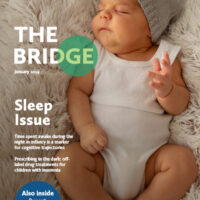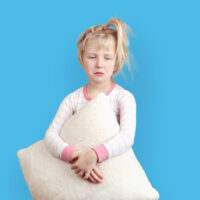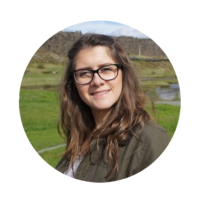Search results
-
Recommended
Sleep
Children and adolescents who are experiencing difficulties with their mental health also often struggle with their sleep. Indeed disrupted or altered sleep has been associated with most psychiatric disorders (Gregory & Sadeh, 2016). Although a range of sleep difficulties can co-occur with mental health problems, a common difficulty is insomnia. As such this guidance will primarily focus on difficulties with getting to sleep and staying asleep.
Read more -

Sleep Editorial
This edition of The Bridge concentrates on sleep, a poignant reminder that I am editing this on a 6am train to London having shortened my own sleep cycle and feeling rather sleep deprived on this dark winter morning.
Read more -

Sleep Edition
This edition of The Bridge concentrates on sleep, a poignant reminder that I am editing this on a 6am train to London having shortened my own sleep cycle and feeling rather sleep deprived on this dark winter morning.
Read more -

Sleep Edition
This edition of The Bridge concentrates on sleep, a poignant reminder that I am editing this on a 6am train to London having shortened my own sleep cycle and feeling rather sleep deprived on this dark winter morning.
Read more -

Sleep
Children and adolescents who are experiencing difficulties with their mental health also often struggle with their sleep. Indeed disrupted or altered sleep has been associated with most psychiatric disorders (Gregory & Sadeh, 2016). Although a range of sleep difficulties can co-occur with mental health problems, a common difficulty is insomnia. As such this guidance will primarily focus on difficulties with getting to sleep and staying asleep.
Read more -

Chronotype and Depression in Adolescence
We know that there is a bidirectional association between sleep duration/quality and depressive symptoms in youth. In adult populations depressive symptoms and circadian rhythms (sleep chronotype) have also been linked. In this paper, we established an association between chronotype and depressive symptoms in middle adolescence, independently of poor sleep and prior mental health difficulties.
Read more -

More frequent naps are associated with lower cognitive development in a cohort of 8–38-month-old children, during the Covid-19 pandemic
Open Access paper from JCPP Advances – ‘Here we investigate sleep patterns in association with two measures of cognitive ability, vocabulary size, measured with the Oxford-Communicative Development Inventory and cognitive executive functions (EF), measured with the Early EF Questionnaire, in a cohort of 8–38-month-olds’. Teodora Gliga (pic) et al.
Read more -

Sub-types of insomnia in adolescents: Insights from a quantitative/molecular twin study
Open Access paper from JCPP Advances – ‘Insomnia with short sleep duration has been postulated as more severe than that accompanied by normal/long sleep length. While the short duration subtype is considered to have greater genetic influence than the other subtype, no studies have addressed this question’. Juan J. Madrid-Valero (pic) et al.
Read more -

Melatonin use and the risk of self-harm and unintentional injuries in youths with and without psychiatric disorders
Open Access paper from the JCPP – ‘This study investigated whether melatonin, which is the most common medication for sleep disturbances in youth in Sweden, is associated with a decreased risk of injury. Analyses were stratified by sex, injury type, psychiatric comorbidities and age at melatonin-treatment initiation’. Marica Leone (pic) et al.
Read more -

Ask the Expert ‘Improving Children’s Sleep; The role a teacher can play’
Dr. Faith Orchard joins us for the second in the series of sessions exclusively for Teachers. This FREE online event is an exciting new partnership between ACAMH and Coram Life Education (CLE) exclusively for Teachers. It offers insights into the latest evidence-base, together with practical advice to help you help your pupils, and your on children.
- Event type
- Teacher Exclusive Event
- Location
- LIVE STREAM
-

Dr. Alice M. Gregory
Alice Gregory is a psychologist at Royal Holloway, University of London. Alice first developed an interest in sleep research as an undergraduate student of Experimental Psychology at the University of Oxford and went on to complete her PhD at the Social, Genetic, Developmental Psychiatry Research Centre, King’s College, London.
Read more